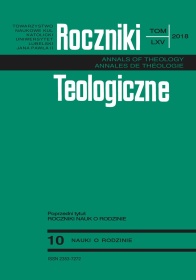The Question of the Psychological Structure of Affects
Abstrakt
Artykuł analizuje naturę rozwoju afektów, ich regresje i implikacje w różnych psychologicznych teoriach i podejściach współczesnej psychologii. Omówiono i opisano korzyści oraz znaczenie afektów w całej aktywności psychobiologicznej człowieka. Określono mechanizmy wpływu afektów na zachowanie i indywidualne reakcje na bodźce zewnętrzne. Afekty stają się specyficzne, ponieważ ich znaczenie i okoliczności są powiązane z pewnymi sytuacjami, reakcjami, uczuciami, gestami ciała, mimiką i słowami. Są związane z pewnymi przedmiotami i stanami Ego i mogą pełnić funkcje ochronne organizmu. Struktura psychologiczna afektów sprawia, że dany stan emocjonalny ogólnie wpływa na psychikę, a w szczególności na świadomość.
Bibliografia
Аффект [Электронный ресурс] http://psymedcare.ru/affekt#chto-takoe-affekt [Affekt (Elektronnyy resurs) http://psymedcare.ru/affekt#chto-takoe-affekt].
Архангородский М.Г. К вопросу о психологической структуре психической травмы с точки зрения аналитической психологии, Пенза [Электронный ресурс] http://nar kolog-penza.narod.ru/2_1_5.htm [M. G. Arkhangorodskiy. K voprosu o psikhologicheskoy strukturie psikhichieskoy travmy s tochki zrieniya analitichieskoy psikhologii, (Penza, (Elektronnyi resurs) http://narkolog-penza.narod.ru/2_1_5.htm].
Ежов А. [Электронный ресурс] http://psy4psy.ru/identichnost_i_affekty [A. Yezhov (Elektronnyi resurs)].
Кристал Г., Кристал Д. Интеграция и самоисцеление. Аффект, травма и алекситимия. Москва: Институт общегуманитарных исследований, 2017. [G. Kristal, D. Kristal. Integratsiya i samoistseleniye. Affekt, travma i aleksitimiya. Moskva: Institut Obshchegumanitarnykh Issledovaniy, 2017].
Леонтьев А.Н. Потребности, мотивы и эмоции. Психология эмоций (Тексты). Под ред. В.К. Вилюнаса, Ю.Б. Гипенрейтер. Москва: Издательство Московского Университета, 1984 [A.N. Leontev. Potrebnosti, motivy i emotsii. Psychology of emotions. Texts. Ed. V.K. Viliunas, Yu.B. Hipenreiter. Moskva: Izdatelstvo Moskovskogo Universiteta, 1984].
Малинина М.В. Энергию гнева – в конструктивное русло (Электронный ресурс) https://www.b17.ru/article/87068/ [M.V. Malinina. Energiyu gnieva – v konstruktivnoye ruslo (Elektronnyj resurs)].
Dictionary of the English language. Fourth edition. Houghton Mifflin Company, 2000.
Emde R.N. The prerepresentational self and its affective core. The Psychoanalytic Study of the Child. New Haven: Yale University Press, 1983.
Jacobson E. “The affects and their pleasureunpleasure qualities in relation to psychic discharge processes.” In Drives, Affect, Behavior. Ed. R.M. Loewenstein, 38-66. New York: International Universities Press, 1953.
McDougall J. Fheaters of the Body. New York: W.W. Norton Co., 1989.
Nemiah J., Freiberger H., Sifneos P. “Alexithymia: a view of the psychosomatic process.” In Modern trends in psychosomatic medicine. Ed. O. Hill, 430-440. Butterworths, 1976.
Stern D.N. Implications of infancy research for psychoanalytic theory and practice. In Psychiatry Update II. Ed. L. Grinspoon, 8-12. Washington: American Psychiatric Association, 1983.
Tereshchuk A.D. “Peculiarities of affects in personal psychological development.” Science and Education a New Dimension. Humanities and Social Sciences 5(2017), 24(146): 43-46.
Tustin F. “Autistic objects.” The Internatiional Review of Psycho−Analysis 7(1980), 27-39.
Witwicki W. (ed.). Psychologia. 3 rd. Krakow−Torun, 1, 1946.
Copyright (c) 2018 Roczniki Teologiczne

Utwór dostępny jest na licencji Creative Commons Uznanie autorstwa – Użycie niekomercyjne – Bez utworów zależnych 4.0 Międzynarodowe.





